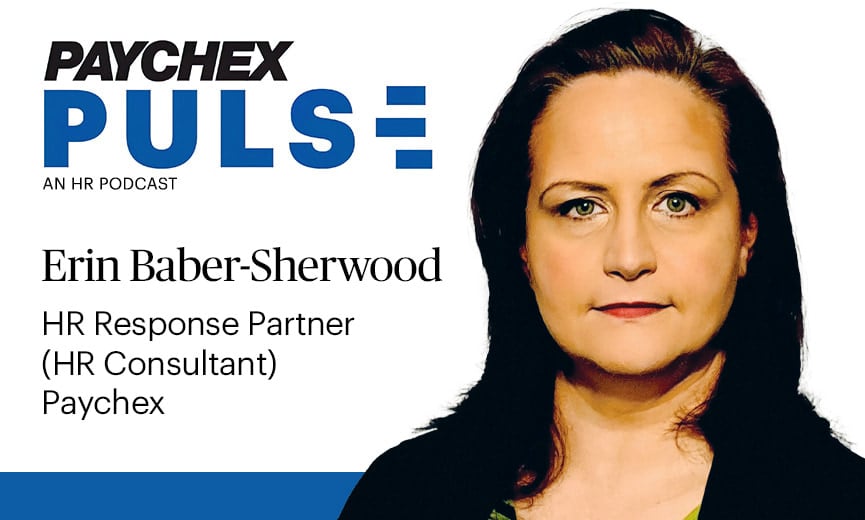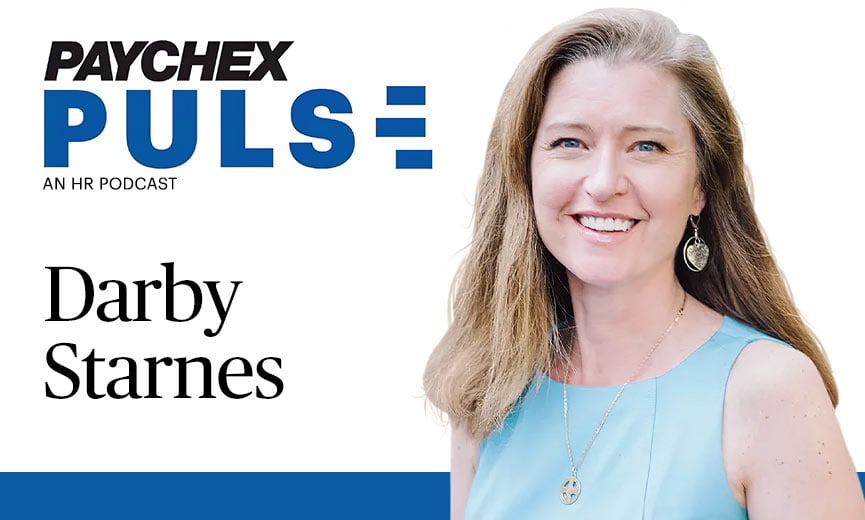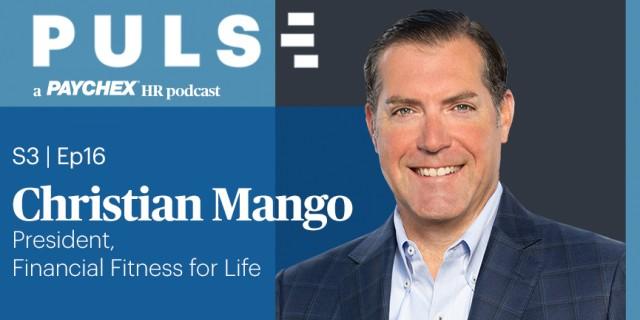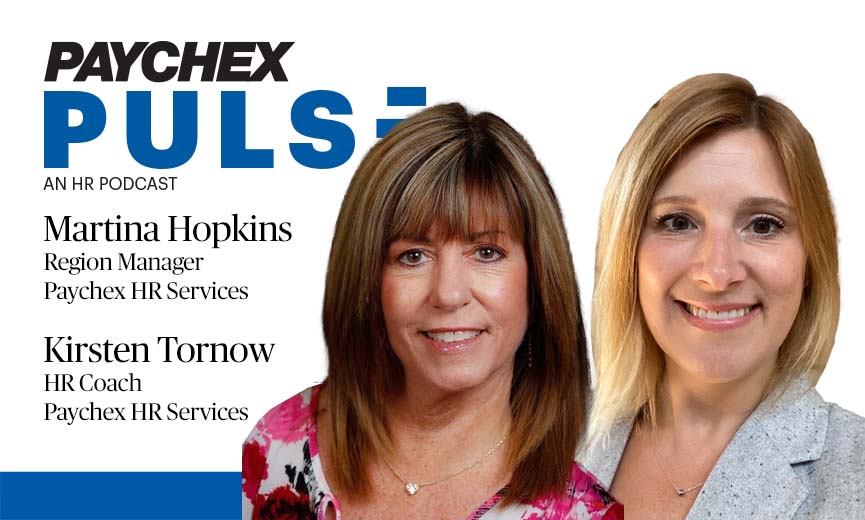Exploring AI’s Potential for More Efficient HR
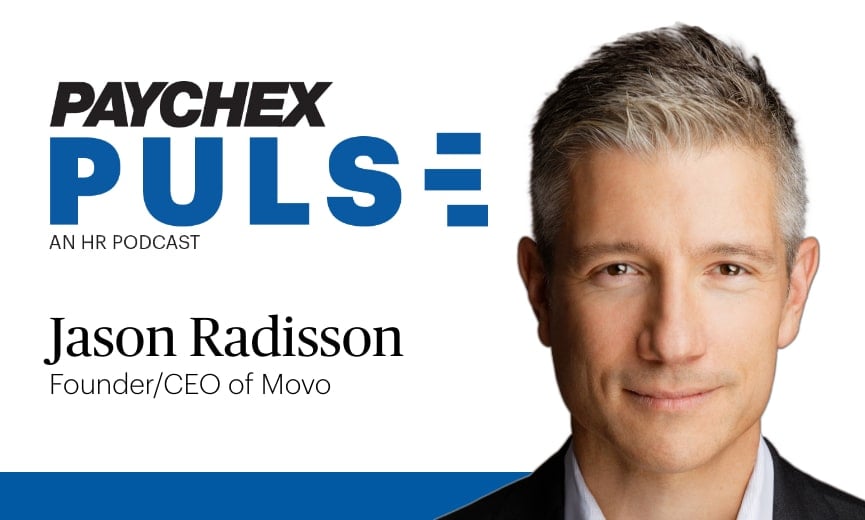
Podcast •

Watch
Summary
Jason Radisson, founder and CEO of Movo, an AI-powered HR platform, joins us to share valuable insights on how AI can provide significant improvements in efficiency, allowing companies to better utilize their workforce. No matter the size of your business, tune in to learn how AI can revolutionize your HR. From automating essential HR processes such as recruiting and scheduling, to reskilling and upskilling employees, Jason shares how you can leverage machine learning to benefit your employees and your business.
Topics include:
00:00 – Welcome Jason Radisson
01:16 – Jason’s journey and why he founded Movo
02:28 – Examples of AI’s usage in HR
04:23 – AI and workforce utilization
05:02 – Why the public perception of AI is changing
07:38 – How AI can improve upskilling
10:05 – Implementing AI in smaller businesses
11:49 – Advice for HR leaders on using AI
13:09 – Wrap Up
Download this checklist to learn how HR technology can help you boost productivity, improve the overall employee experience, and enhance skills.
Looking for more ways to increase efficiency? Try employee self-service.
Paychex doesn’t just have the technology you need to increase efficiencies, but the expert guidance that helps you optimize its benefits. Learn how.
View Transcript
Jason Radisson (00:00)
Large companies really do have the data to know who should be trained in real time, and they should be exploiting that data to make sure that people get access to the job opportunities and the upskilling opportunities that not only benefit them, but in a very win-win way are the best thing for the company.
Rob Parsons (00:22)
Welcome to season four of Paychex PULSE, an HR Podcast where HR professionals can find great insights on today's top issues and be inspired to build and lead effective teams in a healthier workplace. Hi, everyone. Rob Parsons here. Welcome back to the Paychex PULSE podcast. Today, we'll be talking with Jason Radisson, CEO and Founder of Movo, the AI-powered HR platform that automates the process of acquiring, engaging and upskilling a high-volume frontline workforce. And I've been wanting to talk about AI, so today, we're going to lean on Jason's real hands-on experience designing, deploying, and managing AI systems and the teams behind them. Jason, welcome to the podcast.
Jason Radisson (01:13)
Rob, thanks so much for having me on.
Rob Parsons (01:16)
It's fantastic. And I actually want to start with your commitment to the frontline. It's a passion I certainly share, and I understand you founded Movo to address these workers directly, many times just get overlooked and are underserved. So, can you tell me a little bit about Movo? Tell me a little bit about the company and how you get there.
Jason Radisson (01:37)
Absolutely. So, we started, as you mentioned, to solve the frontline workforce problem and broadly speaking, I grew up working a lot of these jobs. I grew up the only child of a 16-year-old single mom. And there are all kinds of frontline jobs. I've probably work 20 different frontline jobs throughout school and college and grad school and everything along the way. As I look at the opportunity and sort of the impact that one with a mission like ours and a mission like my own personal mission can have out there in the world, the frontline is where you can really move the needle and make a significant impact on millions of people's lives. And that's where we've been with our company since we founded it.
Rob Parsons (02:27)
That's fantastic. So, I want to get into AI in more general here. You spoke on this topic at SHRM, you covered a lot of great areas but I want to start with, I mean, we've been hearing about AI for a long time, but it's not just vaporware anymore. Can you give me some of the concrete examples that you've seen and you've seen it in HR and seen AI at work?
Jason Radisson (02:50)
Yeah, very much so. I think in HR some of the biggest ones they've... And obviously with ChatGPT and with generative AI it's very much top of mind. But a lot of the heavy lifting has been machine learning algorithms that have been in place for a long time and certainly dating all the way back to the beginning of the gig economy and even some systems prior to that. So, we're talking 2010 to 2012 where a lot of these first systems were split up. The big ones are hiring automation, recruiting automation where essentially you have a self-service portal or a self-service app where employees can essentially hire themselves with a few clicks and with minimal involvement from the company. Another real big one is employee scheduling and sort of automating the process of filling the schedule, decreasing, increasing the schedule based on what the demand is in the company. Those are the two of the biggest ones and I think the ones that midterm are going to be the most financial impact and the most impact on people's lives if I look at the overall area of AI and HR.
Rob Parsons (04:09)
It makes a lot of sense. I could see scheduling having a huge impact, shift swapping, all the things it does to make it easier to really maintain control of my life and have the flexibility and the opportunity to work as much as I want or when I want.
Jason Radisson (04:22)
Absolutely. Absolutely. And it is broader implications. We talk about internal talent marketplaces at very large companies and if you're managing a workforce of 10,000 people in multiple sites in a city, how you move them around? What facilities they're working in, even what roles if you're doing a bunch of cross training to have better utilization of that workforce? These are huge, huge levers. There's versus pen and paper and versus sort of traditional systems. There's a lot of room for AI to generate 10, 20, 30% improvements in efficiency of using that workforce.
Rob Parsons (05:02)
So, what's changed? I talked to Ben Eubanks about this the other day, and he talked about the democratization of AI that it's become much more accessible and that's why we're hearing about it so much more. Are you seeing the same thing? Why is AI suddenly seem to be a thing?
Jason Radisson (05:19)
I think what's changed is the average individual as a consumer out there, we're able to see real AI use cases in our everyday lives. I think that's what's changed. Whereas a lot of the last 20 years or even 30 years if we look at the airline industry that a lot of really powerful AIs have been deployed in the world. We haven't really seen them. Magically an airline manages to price our seat and book its airplanes in real time across billions of transactions a year. But the average person doesn't really think about that as an AI system, or trading, what's sort of happened to trading floors and a lot of these other very much machine learning specific AI use cases, they've been there. So, I think it's really more public perception. We're now in this phase where you can interact with a very powerful AI using text and using chat. I think that new interface is great, but like a lot of things with chat and with text, it's a fairly limited interface. The autopilot isn't going to be a chat bot anytime soon in an airplane. You've got too many different controls that you'll want to monitor and to be interacting with to just sort of abstract that all away. And I think it's similar in a lot of corporate systems. I don't think we're going to be doing large scale workforce deployment as a chat bot anytime soon. I think it's going to be a GUI and you're even seeing this direction, a lot of generative AI and chat use cases. What people are doing is they're specializing, this very particular niche deployments of ChatGPT and other generative AI, they're putting GUIs on top of it. So, I'm long on the GUI and I think chat has its places.
Rob Parsons (07:38)
Last year at HR Tech, it was all about talent acquisition. That's the area where AI was going to make this huge impact. You talked about scheduling and a little bit of the workforce management. What other HR functions should I be looking at to exploit AI and take advantage of AI? Where else should I be looking at that?
Jason Radisson (08:00)
I think another great use case is upskilling, upskilling, reskilling. And it's of course related to the overall general theme of deploying your workers in the best possible spots. I think what is so impactful from an AI sense is we're able, through workforce in pretty standard machine learning applications, we're able to see where skilled workers and semi-skilled workers, workers with different skill sets are best able to have impact in the company. We can see that in the kind of productivity that they have day-to-day on whatever systems that they're working with. And we're pretty easily able to model that back into unskilled workers, new people coming into the company. Which is one way of saying large companies really do have the data to know who should be trained in real time and they should be exploiting that data to make sure that people get access to the job opportunities and the upskilling opportunities that not only benefit them but in a very win-win way are the best thing for the company. That is a huge one and hugely socially impactful. And I think in this mode, you spoke about talent acquisition having been such a hot topic last year, in this mode, I think a lot of companies, a lot of large companies as we're seeing it have sort of resigned themselves to the fact that "I really can't hire and fire employees. I really need to keep the good employees that I have and I need to do more with them, make sure they're engaged, make sure I'm retaining them, make sure I'm getting them into the highest impact roles that I can do." Because let's face it, our workforce is essentially shrinking. So, I think that's the mode we're in and I would be looking to technology partners to assist in that sort of very objective database approach to making sure that upskilling happens as it should in my company.
Rob Parsons (10:05)
So, you'd mentioned big companies and I think it's easy to think that this is just technology that's available to a big company. If I'm in a smaller company, 500 people or less, 200 people or less, I'm an HR leader there. How do I start in AI? Where do I invest, what do I look at? How do I make it happen when maybe I don't have this well-developed IT team that's going to help me make AI work in HR?
Jason Radisson (10:29)
Yeah, absolutely. And I may not have the data, the robust data. I may only be working with a handful of workers—
Rob Parsons (10:36)
Right.
Jason Radisson (10:38)
So, it's extra challenging. On the other side, there are a lot of tools out there. There's certainly the industry is responding the technology industry is responding. We're coming up with great new technologies every day. I think for a small HR department it's really the opportunity is there to be able to do a lot more with less. And really the way I would look at it or advise looking at it is sort of from the perspective of "What are a bunch of things that take up my time that I really could be automating and sort of delegating out to a system." If you follow that approach, then I think you're on the right track and you can really focus on the things that human beings do better and let sort of the boring process work be done by robots essentially as you partner with AI companies.
Rob Parsons (11:34)
Yeah. That's how our team is looking at it too. It's "Let's offload the low value tasks to the technology and free ourselves up to think about some more important things." So, I think that makes a lot of sense.
Jason Radisson (11:45)
Yeah, yeah. From recruiting on down. Absolutely.
Rob Parsons (11:49)
So, it's a big topic, Jason, that I appreciate you coming in today to talk about it. Any last thoughts for our listeners? I'm sure you've got hundreds, but if you were talking to an HR professional right now about AI and making it work what would your last thoughts be?
Jason Radisson (12:03)
Yeah, I think my thoughts would be one thing is sort of getting up to speed. I think my personal approach and the approach certainly of our company is to be extremely pragmatic. What are some very concrete use cases that you could do today and then starting down that path, there's only sort of going to be so much that you can research and so much that you can talk about it. We're essentially looking at a change management topic and I think just pragmatism. "Hey, if we were to automate this process that would be great for the company. It would start to put us in the direction of having some really concrete value from these new systems." I think just taking those first couple of small steps with some pilots and from the HR position from the HR department starting to assist the company with some of these transformations that are coming.
Rob Parsons (13:09)
Love it. Jason, that's such great information here. Thank you for joining me today, this was excellent.
Jason Radisson (13:16)
Rob, thanks so much for having me on.
Rob Parsons (13:18)
And thank you to our listeners as well. As always, please stay happy and healthy. Be sure to subscribe to this and our Paychex Thrive Business Podcast on your favorite podcast platform. Looking for more ways to keep your finger on the pulse of industry dynamics? Visit our resource center for the latest research, thought leadership and news at paychex.com/worx. That's W-O-R-X, thanks again for joining us. Until next time, please stay happy and healthy.
Announcer (13:50)
This podcast is property of Paychex, Incorporated 2023, all rights reserved.

 Apple Podcast
Apple Podcast Spotify
Spotify iHeartRadio
iHeartRadio
